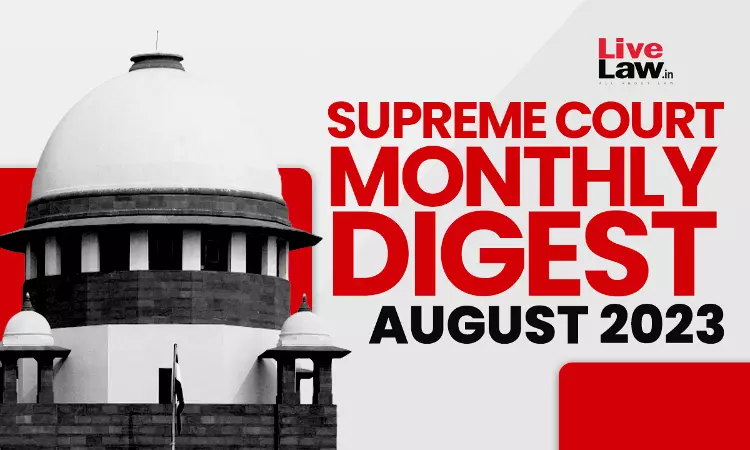- Home
- /
- Supreme court
- /
- Supreme Court Monthly Digest August...
Supreme Court Monthly Digest August 2023
LIVELAW NEWS NETWORK
8 Oct 2023 2:28 PM IST
SUBJECT WISE INDEXAbkari ActPerson receiving information of crime or detecting the occurrence can investigate it. Sathyan v. State of Kerala, 2023 LiveLaw (SC) 627 : 2023 INSC 703Abortion Woman alone has the right over her body; she's the ultimate decision maker on abortion. XYZ v. State of Gujarat, 2023 LiveLaw (SC) 680‘Forcing woman to have child born out of rape against...
Next Story



